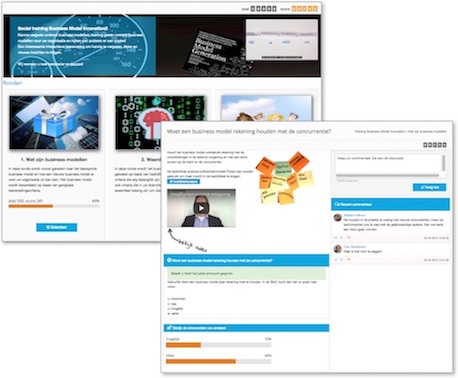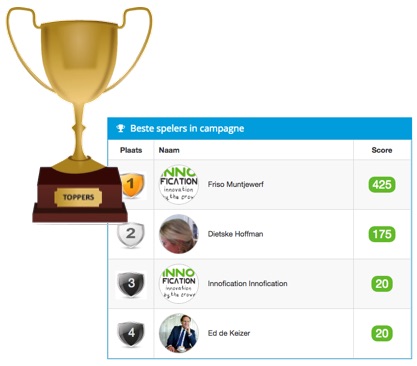Learning is not a monologue, but a dialogue
In order to change as an organization, it is often necessary to change the behavior and attitude of employees in order to achieve the desired goals. Not to mention a cultural change in the organization. In addition, it is important that employees gather relevant knowledge that is of added value in practice. What insights does your organization need about your employees?
Everyone has had the experience that a course or training did not adequately fit into practice. Obtaining a driver's license also does not guarantee that someone can drive a car immediately.
We have not yet spoken about the practice that is often more unruly than the theory. Not everything is black and white and the problems that an organization experiences in practice can not be found regularly in research, literature and / or theory. How beautiful it would be that employees can learn from each other and get new insights.
The only constant we have in this time is a continuous change. New books with "wild" management models, frameworks and methods, new technological changes, being compliant with certain laws and regulations, the changing norms and values of the organization. It does not stop for employees and therefore also for the organization and employees are flooded. Nice training and courses, but the business must continue and that often has the highest priority. Not surprising that there is sometimes resistance to the umpteenth training.

The Innofication social learning module is aimed at gaining knowledge and information, but also at the interaction between employees. This means that employees are presented with information and can take knowledge (micro-learning). In addition, it could be that the employee is expected to answer a question. This can be a typical test question where only one answer is correct or only a question where the opinion of the employee is asked.
After answering a question, the employee can view the answers of other employees to this question. This gives him insights into how other employees view certain subjects. In addition, there is the capability that employees have a discussion about the subject to share knowledge and experiences with one another.
Apart from the fact that employees gather knowledge in a "playful" and interactive approach, it also provides the organization with a wealth of new insights. And it is all real-time and transparent!
The online learning module consists of several rounds in which a specific theme with questions has the focus in each round. Each round and question can contain information in various forms such as html content, documents, videos, etc. In addition, a knowledge base can be set up with content about the relevant subject that can be consulted by the employees. The online learning module consists of several rounds. A round can consist of a fixed start and end date or on the basis of the number of experience points achieved. Experience points can be earned, for example, by viewing and / or reading content, answering questions, giving the correct answer to a question, and commenting on a question. This can all be arranged per question. Gamification elements can be used to add a competition aspect.
We talk about employees, but all stakeholders within your eco-system can participate in the social learning solution that is part of our innovation platform. Of course, multiple social learning modules can be active for you at the same time for different subjects and / or languages.

Social Learning applications
The social learning solution is a Learning Management System (LMS), part of our innovation platform, focused on practice and offers many applications, such as:
learning new skills for entrepreneurship and innovation
working on cultural change
support for organizational change
use as a low-threshold tool to, for example, teach partners in recently launched products
gain insight into the sentiment of employees and potential issues

